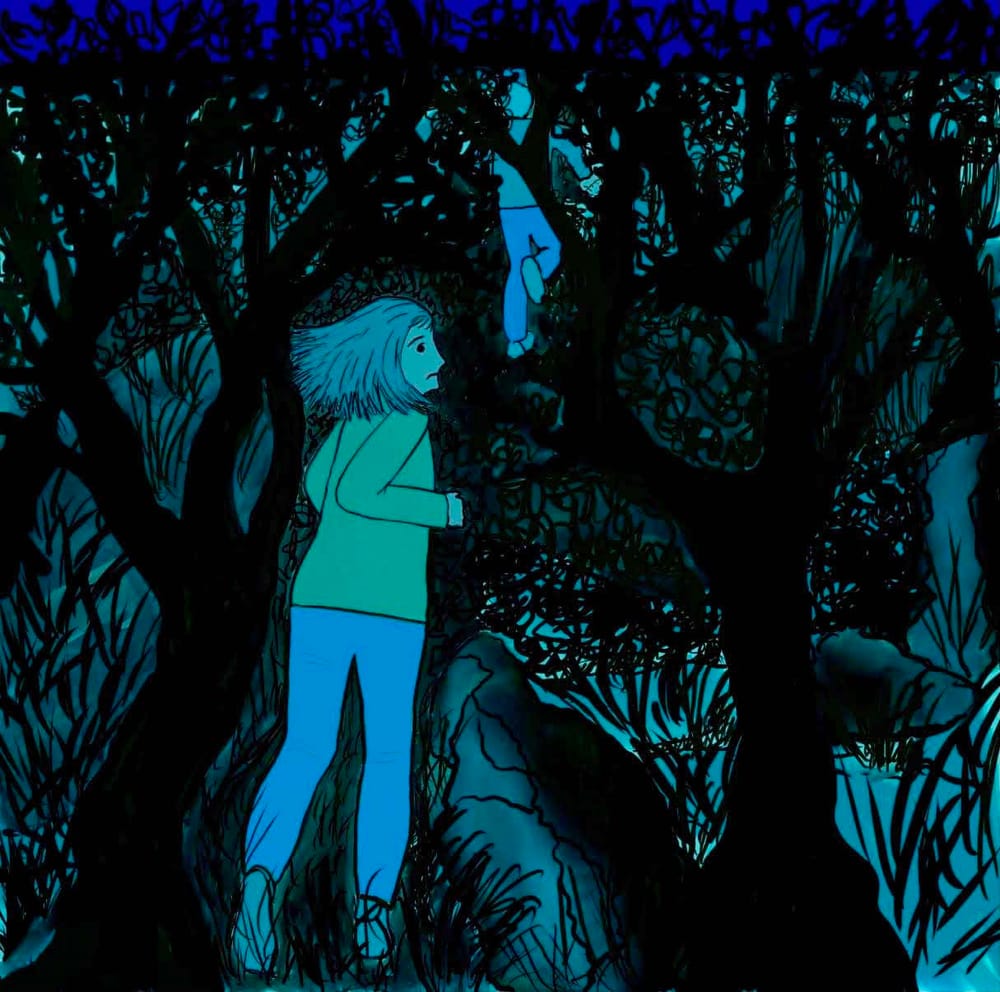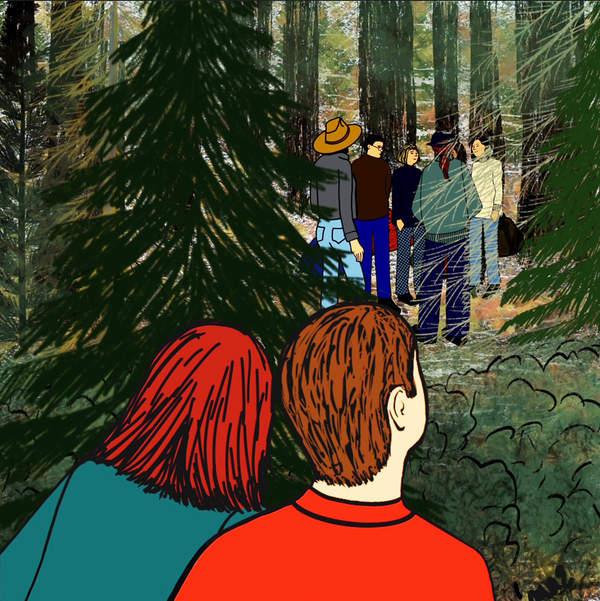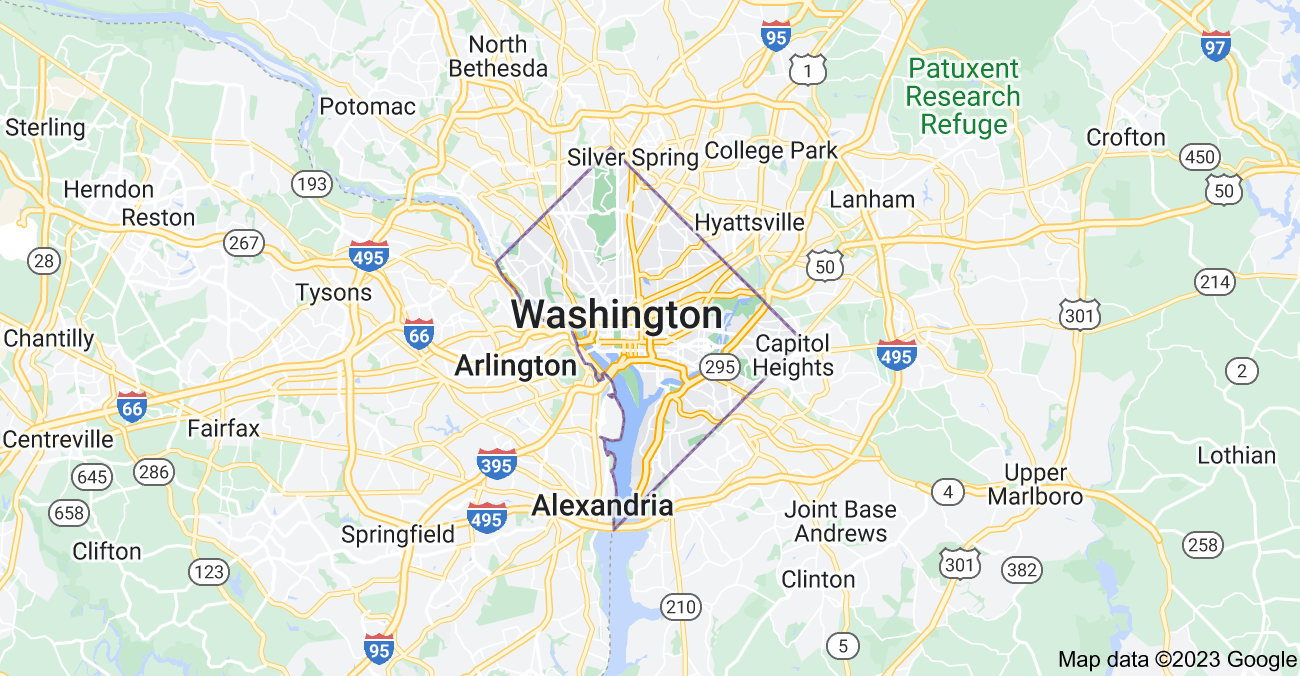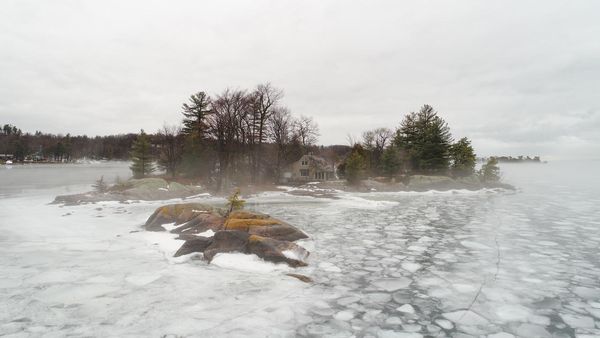The Witch of Wellesley Island, Chapter 3: A Narrow Escape
by: Patrick Metcalf
[Editor's Note: The Witch of Wellesley Island, Chapters 1, 2 and 3: The Scream, A Brush with Evil, and now A Narrow Escape. And, we have a spoiler alert... this is not the last chapter... so stay tuned.]
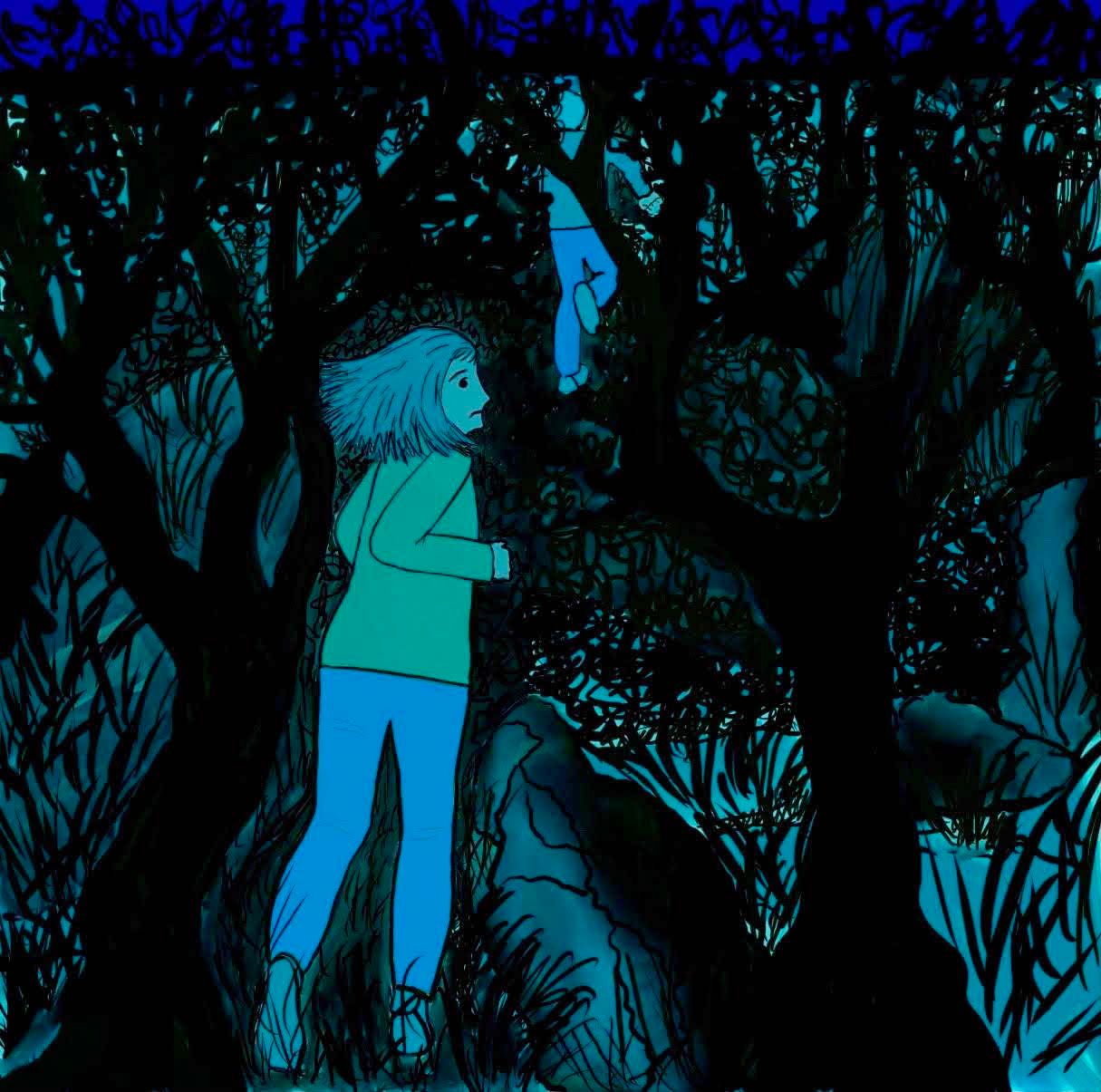
As children, Pete and Sarah spent many weekends with their paternal grandparents, who lived out in the country in an old farmhouse. The native limestone it was built from was the color of the sky on a somber and overcast day.
At first glance, the house appeared as though it were a natural, but unlikely, geological formation. Veins of the same stone protruded from the earth in various places on that hillside, and the remains of the old quarry could still be seen nearby. The construction process for such a large house must have been arduous, and it was difficult to imagine how men had squared off and assembled these huge chunks of rock without the benefit of backhoes or power equipment. It was an impressive structure, and Sarah had often thought of it as being somewhat like an ancient castle. A few immense oak trees stood like towers on both sides, and a nearby spring, complete with a matching limestone springhouse, made a good enough moat in her mind.
The farm had been established during colonial times, and the surrounding gardens, pastures, and fields offered sustenance to successive generations of the Holiday family in exchange for sweat and hard toil. Everything that happened on the farm had revolved around this house, and the family’s fortune and life force were inextricably bound to it. It had been more than just a place to feed and rest those who labored in the fields.
Children had been born and raised there. It was a place for gathering with friends and neighbors to socialize, and to discuss local affairs. It was a place for celebrations; birthdays, weddings, family reunions, and for Thanksgiving, Christmas, and Easter dinners. At times, it was a place of healing for those who were sick or injured. The house had served all of these purposes and more. To this family, for many generations, it was the center of their existence.
It was also a place for dying. In this house, when a family member passed on, the journey to their final resting place was a short one. At the top of the hill was a small cemetery, surrounded by a protective stone wall. Legend had it that great, great, great Grandfather Archibald Holiday often made the joke that he chose the location of the graveyard for the sake of convenience. He wanted a short and easy walk downhill in case he should ever need to return, to reprimand any of his descendants for poor behavior. It was a humorous warning, mostly directed at children, and an extremely effective one at that. More than one nervous look was cast up that hill over the years. Fortunately, such a return from the beyond had never been necessary. Pete and Sarah enjoyed this story. They had often peered out the windows of the house at night time, hoping to catch a glimpse of Archibald strolling down the hill, especially if any of their cousins had misbehaved on that particular day.
Entering the house was always a pleasant experience. Their grandmother would meet them cheerfully at the front door and usher them inside. The functional aesthetic of this house still provided benefits in modern times, as well as a daily reminder of how life was lived in the past. The interior of the house was simple but spacious, with exposed, rough-cut beams, deep window sills, and high ceilings. The building faced south, allowing sunshine to pour into the large rooms, eliminating the need for lamps or candles during waking hours. Most of the furniture was solidly built from trees felled on the farm. Each piece bore the marks earned by serving multiple generations over many years. A rugged old woodstove in the living room kept the cold at bay in the winter months.
Nearby was a recliner, the threadbare cushions covered with a wool blanket, in which Grandad Holiday often napped. The room faintly held the sweet and acrid scent of his cigars. In the kitchen, a massive cook stove waited dutifully to help feed bellies made hungry by the rigors of the daily routine. Also in the kitchen was an old radio that all the grandkids joked must’ve been one of the first ones ever made. It had a tuning dial that looked a bit like the speedometer in an antique car. Even though the sound coming through the speakers was a bit scratchy, it reliably poured out big band tunes from the years during and just after “the war”. All in all, the house was a familiar and comforting place, full of memories and connections to their family’s past.
But not all of the house was so pleasant. The basement was different, and it held a certain fascination for Pete and Sarah. The first and second floors had been designed for comfortable living, but the basement had not. The floor was an uneven patchwork of concrete, and the stone walls were always a bit cold and damp. Halfway down the stairs, a strange and musty smell became apparent. Most of the basement was exquisitely creepy and cluttered, like a poorly lit, abandoned, subterranean consignment store. It was strange to think that each of the items relegated there was once new, once had a purpose, and once had been used and cared for by someone. The story for each object had been lost with the passage of time. Many of these things belonged to those laid to rest not far away, just at the top of the hill.
The miscellaneous and dust-covered items in the basement seemed interconnected, sometimes in strange ways. There was a mannequin torso, the type used for making dresses, next to a riding saddle, which sat on top of a sawhorse. There was a wooden recurve bow and a few arrows, mostly without feathers, beside an empty bird cage. There was a baby doll and a mantle clock, each missing an arm. The clock’s minute hand pointed perpetually at the number eleven, and the doll’s remaining arm was raised as though she wanted to ask a question. There was a leather football helmet, which probably should have been worn by the rider of a beat-up tricycle with bent handlebars. There was an old travel trunk, certainly large enough for a child to crawl inside, secured with a brass padlock, the key for which no one had seen in ages. There was a railroad pickaxe posted nearby, seemingly in case the lock needed to be broken open. There were a number of rickety chairs huddled together, as if sharing secrets under a thin canopy of spider webs. In one corner there was an old rail bed holding a dingy, striped mattress with a depression on it, as though someone had just been resting there. It was easy to imagine how that someone might still be nearby.
Along a wall was a set of shelves, each hosting a procession of canning jars of various shapes and sizes. These jars contained fruits or pickled foods, some newer, others of an indeterminable age, some contents identifiable, and others not. Alone and sulking in the shadowy back corner of the basement was an ancient coal furnace, which had sat idle for decades. It was covered in rust and soot, and the implements to stoke the fire and feed it leaned against the wall nearby. The door to the firebox hung open, like a gaping mouth that never spoke. Because of both the aura and the inhabitants, the basement was both an exciting place for children to play, and at other times a frightening place from which to retrieve a jar of peaches.
As bizarre as many of the things in basement were to Pete and Sarah, the bigger problem for them was the location of the light switch. It was at the bottom of the stairs. To get to it, they would have to open the door and peer down into the darkness. The sunlight only went so far, dribbling down the stone wall, making the switch barely visible. Going down wasn’t the worst part, though. Descending into the musty basement in the dark was unsettling, but every step was one closer to being able to turn on the light. Leaving the basement, and having to turn one’s back to the cluttered and creepy space … and then turn off the lights, was by far the more unpleasant procedure.
Flipping the switch off, while standing at the bottom of the stairs, triggered a nearly absolute loss of visibility. Surprisingly little light came from the open doorway above. Walking nervously up those steps, Sarah always felt that she was being watched, or worse, being followed. She imagined something unseen, reaching toward her from behind. Her flesh crawled at the thought of it touching the middle of her back, or grabbing her hair. And then she would picture herself falling backwards, helplessly. It was as though she were someone else, watching from above, as something terrifying pulled her body down the stairs, and then dragged her off into the darkness. Only cold, hard logic, wielded like a club, could beat down these thoughts. Sarah remembered what a great deal of self-control it required to walk up the stairs at a normal pace, and to calmly close the door behind her.
But that’s not how it usually worked out. Survival strategies are hardwired into the human brain, and a perceived threat triggers a release of adrenaline into the bloodstream. Enough of it overrides rational thought, and results in a fight or flight response. Through no choice of their own, Pete and Sarah often ran up those steps at full speed. The reptilian part of the brain demanded it for the sake of self-preservation. That feeling of being closely pursued by some unknown thing that intends to capture you as prey, for the express purpose of feeding on you, is at the very core of the predator - prey dynamic. It’s that feeling that prompts the dramatic response, the all-out effort to escape. Humans, with their advanced brains, and a path of evolutionary development, which made them both hunters and the hunted, understand this as well as any creature living in the wild.
The experience of fleeing unknown terrors in the basement was an unsettling childhood memory. But they were just kids back then. They had laughed and talked about it many times, and in retrospect, it seemed absurd to have been so frightened. So it was somewhat ironic that they were in this situation all these years later, not as children, but as grown adults. It was happening again. That old and familiar fear compelled them to brake and run from the darkness and the unknown.
However, this time was different, and worse. This was not pure imagination. This time there was actual evidence to support the idea that they were in real and imminent danger. The primitive part of their brains screamed for them to go faster, to escape, and try to live another day. They ran through the forest at full speed, branches ripping and scratching at their faces, flashlights waving wildly. Running through the patches of shadows and moonlight, through trees and boulders and brush, was disorienting. They abandoned any effort at stealth, and the noise that they created while running made it difficult for them to hear anything beyond their own footsteps and labored breathing. It was impossible to know if something was coming up behind them, gaining ground, and preparing to strike.
But Sarah had another problem. She was struggling to keep up with Pete. There were moments where she couldn’t see him up ahead at all, and she worried that she would lose him in the forest. She pushed harder and ran as fast as she could.
And then it happened. Sarah fell. For a split second she felt weightlessness. She twisted to her side and instinctively threw out her left arm to catch herself. The impact was jarring, and she immediately felt a burning sensation in her palm and forearm. The flashlight flew out of her other hand, and she heard it hit a rock and shatter into pieces. The fall knocked the wind out of her. She gasped for air as a wave of panic flooded over her. She wasn’t sure how badly she was hurt, and she was alone in a quiet sea of shadows. She quickly sat up and scanned the area. Her eyes were watering and it was difficult to see. Sarah tried to calm herself so she could hold her breath for a moment in order to listen. The urge to call out was strong, but she didn’t want to give away her location. She desperately looked around, trying to keep watch on all sides. The fear intensified as the realization hit her that she wasn’t sure in which direction Pete had gone. Seconds ticked by. It seemed like an eternity.
Suddenly the silence was broken. She heard a branch snap, but she couldn’t tell exactly where it came from. She looked around, trying to locate a threat hiding somewhere in darkness. Her heart was racing, and her eyes were wide with fear.
“Sarah, are you ok?” Pete appeared out of nowhere, and reached out and touched her arm. She was startled and jerked away from him. It took a second to sink it, but when she realized it was Pete, she breathed a sigh of relief. He grabbed her and pulled her up.
“I’m ok,” she said, not seeming very sure.
“The path down to the beach is right over here,” said Pete. He kept hold of her arm, and led her to it. “You take the light and I’ll follow.” He handed her the flashlight, and they made their way down the steep path.
When they were almost at the bottom, Sarah stumbled again. She was breathing hard, and at this point, she was more frustrated than anything else. She stopped, turned toward Pete, put her left hand out and leaned against a nearby boulder. The coolness of the stone soothed her wounded hand.
“The boat is right through that opening,” said Pete pointing over her shoulder at a gap in the trees. He was breathing hard too.
“Ok, I just need a second,” said Sarah.
“Are you hurt?” asked Pete.
“I scraped my hand.” Right as she said it, she withdrew her hand, and the beam from the flashlight shone on the boulder. They both stared at the bloody handprint Sarah had left there.
“Yikes…” said Pete, grimacing.
“It’s fine,” said Sarah. She handed him the flashlight and wrapped her hand in the bottom of her shirt. “Don’t be a baby.”
“Just a few more steps,” he said. Pete shone the light down the remainder of the path, and they turned and ran the short distance to the beach.
“Get in the boat,” said Pete. “I’ll push us off.” Sarah climbed in, and Pete handed the light back to her. He picked up the anchor and set it in the front of the boat. In one smooth motion, he pushed the boat back off the beach and hopped into the bow and made his way toward the console.
Just then they heard something in the forest.
“Wait!” said Pete, seeing that Sarah wanted to shine the flashlight in that direction. “Let me start the boat first.” Pete turned the key and the outboard motor purred to life. He pulled the gear shifter back and it clunked into reverse. Very slowly he backed the craft out and away from the shoreline.
“Go ahead.” He gave her a nod.
Sarah shone the flashlight up the path to the spot where they had just stopped and rested. They stared in horror. A large canine-like beast stood on the path, and appeared to be sniffing the very spot where Sarah had left the bloody handprint. The animal was as black as night. For what seemed like a very long time they stared as their thoughts reeled and they tried to comprehend what they were witnessing.
Suddenly it turned and looked directly at them. Its eyes glowed an unearthly green, reflecting the beam from the flashlight.
“Oh my God…” said Sarah, gasping.
“Time to go!” said Pete. He turned the wheel sharply to the right and jammed the throttle forward. The engine moaned and boat leapt forward, and they sped into the mouth of the Narrows.
It felt good to have the wind in their faces and to be speeding away from danger. Sarah handed Pete the flashlight and he turned it off and stuck it in the compartment beside his seat. A sense of relief started to flood over Sarah. She wanted to get far away from this place as quickly as possible. She was looking forward to a hot shower, bandaging her hand, and talking through all the events of this crazy night. The Narrows was a “no wake” area, but Pete didn’t care. He was hammering it through as quickly as he could. Sarah looked behind them, and in the moonlight, she could see the boat’s wake crashing up against the base of the cliff.
“Seriously,” said Pete. He turned toward Sarah. “What in the hell was that thing?”
By Patrick Metcalf [All rights reserved ©2020]
Patrick Metcalf began vacationing in the Thousand Islands, more than 20 years ago, when his grandmother and her two sisters rented three houses for a week, each summer in Fine View on Wellesley Island, and invited their families from Pennsylvania, Michigan, and Florida. Patrick spends as much time as he can each summer, on the River, near Clayton, NY. He began writing to entertain his son Lee, who is now nine years old. Patrick resides in Shippensburg, PA, holds a Masters Degree in Public Administration, and is a Marine Corps veteran. See all of Patrick Metcalf's TI Life works here..
Illustration for The Witch of Wellesley Island: Chapter 3, "A Narrow Escape" is by Marie-Anne Erki ©2020, Kingston, ON.
(Last month I announced the final chapter would come in January... but the author is not stopping at Chapter 3... So be sure to come back for Chapter4!

